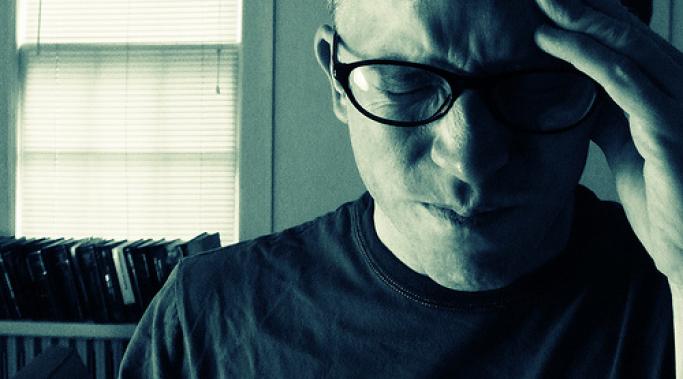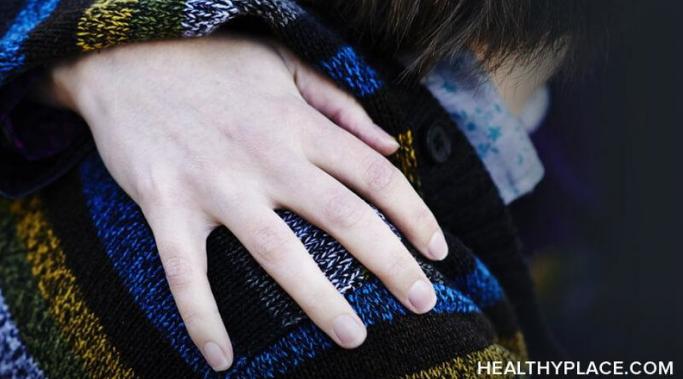Blogs
I've been wrong about a lot of things in my lifetime. Life is funny like that, always moving the ball when you're not looking.
And one of them was this: I thought I was too smart to have a mental illness.
The process of coming to terms with your sexual preferences can be challenging and difficult for some people, it's something that many of us take for granted. So what happens if you marry following societal social norms and later discover that you are gay? Dr. Loren Olson, psychiatrist and author, can explain this experience better than most, as he has lived it himself.
While a personality test is legal, a test designed for clinical diagnosis is not. Saterfiel and Associates explains "The courts have consistently ruled against the general use of those psychological assessments in the business environment. The use of clinically inclined instruments would also fly in the face of the Americans With Disabilities Act since they are mainly designed to diagnose abnormal behavioral patterns. The ADA states that an employer 'shall not conduct a medical examination or make inquiries as to whether such applicant is an individual with a disability or as to the nature and severity of such disability.'"
I've been trying for four days now to finish an article on depersonalization, one of five primary ways dissociation manifests. I wanted to address the milder episodes of depersonalization most people experience at one time or another. But I have Dissociative Identity Disorder, and severe depersonalization is part of living with DID. Ironically enough, it's depersonalization itself - specifically, mental clouding - that's preventing me from finishing that article. I've finally decided that if I'm going to continue to try to write in a highly depersonalized state, it makes sense to stop fighting it and simply do my best to describe what I'm experiencing. The article I intended to publish today will have to wait until I can think clearly again.
Many people who are dealing with mental health issues like anxiety and ADHD look for additional and alternative treatments to medication. One thing that these people find challenging is finding credible information and sources. Our guest, Jeff Lewis, MSSW, LSCSW, BCIAC is a Licensed Specialist Clinical Social Worker and a Fellow of the Biofeedback Certification Institute of America. He has been in clinical practice for 17 years. Jeff Shares with us the descriptions of biofeedback and neurofeedback, its application, and how to find trusted sources for treatment.
It feels like we stepped into a time machine and it's 2005 once again . That was the last time Ben was admitted to the psych ward in this hospital. And now, we're back. I've gone from stone-faced shock (Friday) to tears of helplessness and grief (Saturday), to a determination to enjoy Fathers' Day despite the fact that Ben can't be with us (today). And now, with all distractions gone, it's early in the morning and I can't sleep. My head is spinning with all I must do tomorrow to try and bring Ben back to life again. If I can.
Logic tells me that my control is limited at best: this is Ben's journey, these are Ben's decisions. He has somehow managed to stop taking his meds again, and now it's as if the past six years of success - college classes, increased responsibility, full participation in family, and finally employment - are all in jeopardy.
But the mother in me is absolutely livid.
On a scale of 1-10 how annoying is it when therapists ask questions which sound more like triage than psychotherapy?
One of my commenters took me to task for not talking much (or indeed at all) about the behavioral side of cognitive behavioral therapy (CBT) in a recent post. I shall now regale you with exciting tales of behavioral psychology in order to rectify the situation. Or not, since I expect your definition of exciting extends a touch beyond this topic.
My somewhat love-hate relationship with the B part of CBT aside, the real question is what works.
I am suffering through a bout of codependency. I came to recognize codependency during my abusive marriage but largely forgot about it during the past months because my abuser isn't around to abuse me (as much) since our separation. However, I am discovering that my new abuser is me. I don't have a completely healthy relationship with myself yet - but I will change that.
Geesh. Just when I thought I was done with "the hard stuff" codependency returns to bite me in the ankle.
Some people believe that the term "borderline" is stigmatizing and inaccurate. Should BPD be renamed? If so, what should it be called?
I don't trust celebrity parents when it comes to parenting advice. Color me cynical, but I just don't think Angelina Jolie is any authority on potty-training anymore than Madonna would be on talking to your child about sex.
But you know what they say about desperate times calling for desperate measures.







